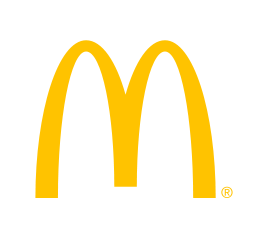
As a result of their growing international operations, many Dow companies earn revenue not just in U.S. dollars but also in a wide variety of foreign currencies from around the world. Moreover, currency exchange rates change every day, and over the long run, their fluctuations can add up to have a truly massive impact on a company’s sales and net income. In response, top companies have to take steps to avoid being vulnerable to adverse currency moves that can ruin their financial results and spook shareholders. Later, I’ll discuss four companies that have particularly high exposure to currencies, but first, let’s take a closer look at the issue.
Why currencies are so important
Foreign exchange markets may seem complicated, with dozens of major currencies gaining and losing value against each other. But for businesses, the impact that currencies have is relatively simple.
Consumers in the U.S. are used to seeing prices remain relatively stable for most of the products they buy. With the exception of gas stations, where consumers are used to seeing prices rise and fall dramatically on a regular basis, companies do their best to set pricing levels and keep them relatively constant to avoid customer confusion and uncertainty.
Many U.S. investors don’t realize that companies doing business internationally do their best to do the same thing with their foreign sales. By keeping prices in foreign-currency terms stable, companies build customer loyalty and demonstrate their connection to the markets in which they do business.
Keeping prices stable in local-currency terms makes sense from a customer-relations standpoint, but it introduces problems from a financial perspective. When the dollar is strong, the sales and profits that a multinational company earns from its foreign operations are worth less in dollar terms, hurting reported sales figures and reducing overall dollar profits. But when the dollar weakens, the foreign currency those companies bring in is worth more in dollars, boosting sales and profits.
Similarly, the dollar’s moves can have a big impact on the costs that companies pay if they rely on foreign markets to get the supplies they need for making products. But here, the effect is the opposite: When the dollar is strong, companies can import supplies more cheaply in dollar terms, cutting their costs and enabling them to enjoy increased margins. A weak dollar makes it more expensive to buy products priced in foreign currencies, squeezing margins.
Which Dow stocks are most affected?
Clearly, companies that have the most foreign exposure have the biggest challenge in dealing with fluctuations. In particular:
1). The Procter & Gamble Company (NYSE:PG) has operations in more than 180 countries. With international revenue of more than $54 billion in fiscal 2012 — almost two-thirds of its overall revenue — currencies are a key aspect of P&G’s results. Earlier this month, the company cut its earnings guidance for the current quarter because Venezuela devalued its currency, causing P&G to project a one-time charge of $200 million to $275 million.





